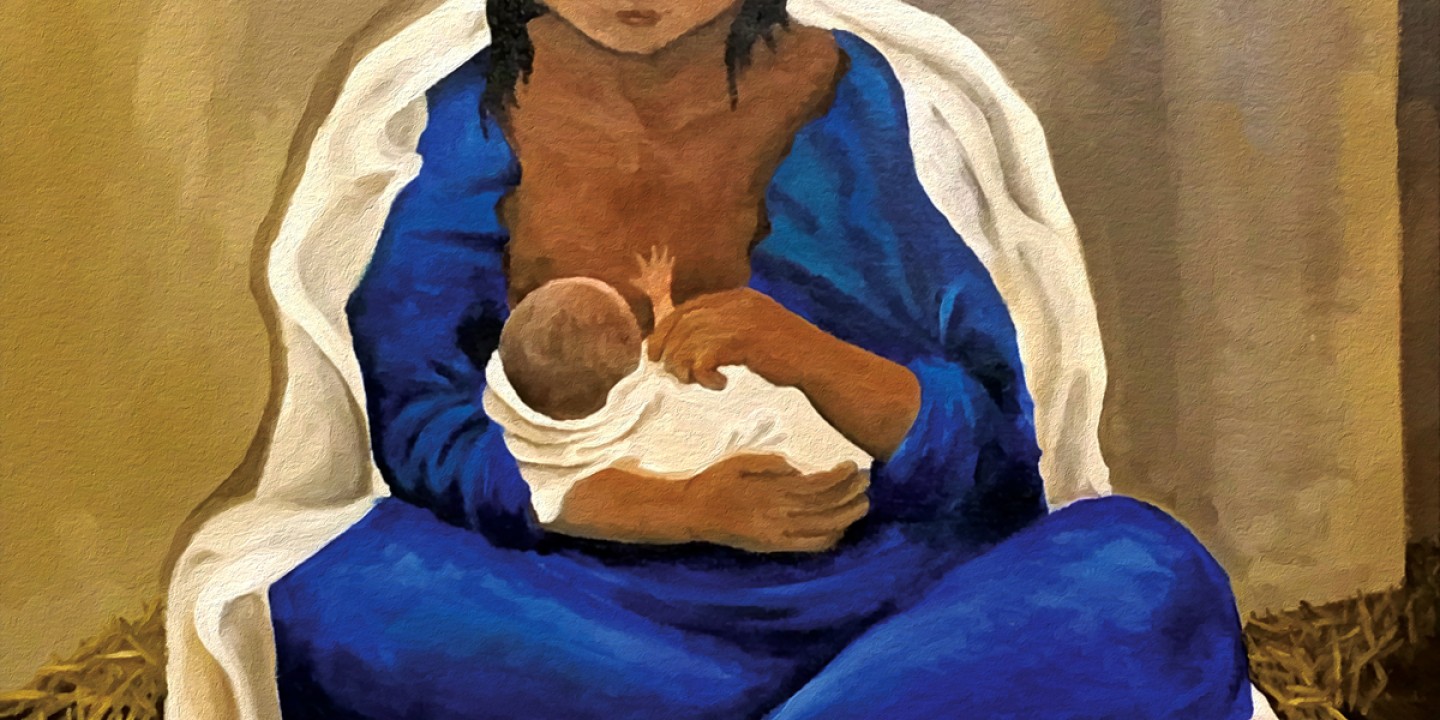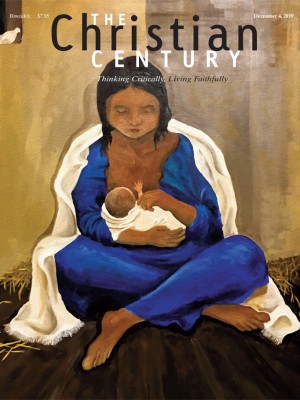
Although lager is not my brew of choice, I find myself ordering a pint at bars ever since I finished J. Ryan Stradal’s The Lager Queen of Minnesota. The novel’s charming story centers on a rift that forms between two sisters when their father leaves the family farm to his younger daughter, Helen. The older daughter, Edith, spends the next several decades just getting by, while Helen builds one of Minnesota’s most successful breweries. The book spans many years of these women’s lives, introducing us to Edith’s granddaughter, who finds her own way into the beer business, and eventually showing us how families can repair themselves. Stradal writes with care about these women, the Midwest, and the virtues of lagers compared to IPAs.
I know some people who haven’t read Sally Rooney’s novel Normal People because stories about teenage relationships don’t appeal to them. They are missing out. At school, popular Connell and loner Marianne run in different social circles. Although his mother works for her family, the two teens pretend to be strangers in public. They have an intense connection, however, that keeps them tethered as they move into college and adulthood. The way Rooney writes her characters’ inner dialogue makes me feel like a trespasser in the most private corners of their lives. Such an intimate portrayal left me uncomfortable at times, but it also rendered me incapable of putting the book away. How could I leave Connell and Marianne behind?
Read our latest issue or browse back issues.
I haven’t stopped thinking about my own relationship with trees since finishing Richard Powers’s The Overstory this past spring. The book focuses on nine individuals and their connections to trees: a child is paralyzed when he falls from a branch, a farmer’s American chestnut survives for generations longer than any other, a soldier is saved when a banyan tree catches him and his parachute out of the sky. These stories intertwine when the characters are forced to address the eradication of America’s forests. While I have never been rescued by a tree, or even fallen from one, they have been important to the landscape of my life. Powers’s prose reminds me of this history.
—Rachel Pyle, editorial assistant
In my adult life, I’ve been haunted by the way that my parents’ generation “entertained.” To my mind, entertaining involves white tablecloths, handmade centerpieces, and silver candlesticks. It’s an elaborate ritual of welcome and gifts and neighborliness. I feel a longing for it, but also a sense that I am sure to do it wrong and would be exhausted by it. I’ve often wanted to find my own way with hospitality.
Apparently I’m not alone in this feeling. In Nothing Fancy: Unfussy Food for Having People Over, Alison Roman writes, “It’s not entertaining. It is having people over.” I’ve decided to give this book for Christmas this year because many of us could use more time with our friends and more ordinary occasions to be together. The food is imaginative but unintimidating. The vibe is casual and playful. It could inspire many a simple, even spontaneous get together. (I’ve decided, however, to give this book only to people who don’t live in my town, because I don’t want to appear to be hinting that my local friends should have me over. Although that would be nice.)
The other thing that has been occupying my mind recently is the idea of building a little camper to put on the back of a pickup truck and traveling around the country. This is not a great climate change preventing activity, I don’t own a pickup truck, and I’m not saying that I recommend it or am going to do it. But earlier this year I read John Steinbeck’s classic Travels with Charley in Search of America, which is about the trip he took in his camper (which he called Rocinante after Don Quixote’s steed) with his dog Charley to “find America.”
It seems to me that the America Steinbeck found isn’t that different from the America we might find today: obsessed with consumer culture and advertising, deeply divided over race, and even so, quirky and tender and unmistakably regional. Instead of actually doing Steinbeck’s trip I’m planning to share his classic account of it with people I love—along with bamboo cutlery and homemade cloth napkins for the ones fond of eating their meals on the road.
—Amy Frykholm, associate editor
If John Muir had had access to a computer keyboard, I picture him composing a book just like Erosion: Essays of Undoing. Terry Tempest Williams’s writing about the erosion of land, soul, and body politic in America is courageous and beautiful, all in one. She connects readers so closely to the land that, with every page turn, one can practically hear a sage grouse breathing or a melting glacier dripping. From my concrete and asphalt world, I was expecting another predictable book on climate change, oil and gas extraction, and federal policy related to both. What I found instead was eloquent prose from a woman who understands that as broken as our world is, it’s still fit for beauty. Williams’s heightened awareness of things that should matter to all of us—from Utah prairie dogs to the Rwandan genocide—had me sitting upright, both loving and grieving the life I lead and the choices I make.
Maybe it’s the wannabe historian in me, or that strong urge to find hope in politically grim times, but I found Jon Meacham’s The Soul of America speaking gracefully to doubts many of us may have about this less than perfect Union. Meacham peers into the American soul, sees the negative forces that have infected our politics, and comes out believing that the “better angels of our nature” will triumph. Doing what only a skilled historian can do, he provides long-term perspective to some of the darkest impulses that worry us most, with racism and tribalism among the more urgent. He’s a brilliant writer with fluent prose. Reading The Soul of America felt to me strangely like participating in a calm and reassuring prayer. A prayer of hope.
—Peter W. Marty, publisher
For four years, holistic reproductive health practitioner Lisa Hendrickson-Jack has been helping people become body literate through her Fertility Friday blog and podcast. Now, with her first book, The Fifth Vital Sign: Master Your Cycles and Optimize Your Fertility, she makes a valuable contribution to the small canon of literature dedicated to menstrual health.
As the title suggests, The Fifth Vital Sign lays out the case for why understanding the menstrual cycle is important for reasons beyond trying to have or not have a baby. There is such a thing as a “normal cycle,” Hendrickson-Jack says, and she walks readers through the ways in which deviations from that norm can indicate larger health concerns. She also teaches readers how to get their menstrual cycles back on track—an intentional contrast from the common practice of prescribing birth control pills to mask the symptoms of reproductive health issues without addressing their root causes. This book is essential reading for anyone who has a uterus or who loves someone with a uterus.
In an interview earlier this year, Father Richard Rohr described The Universal Christ: How a Forgotten Reality Can Change Everything We See, Hope For, and Believe as the culmination of everything else he’s written over the last 30 years. I don’t think he intended that to be an endorsement of his own work, but that’s how I took it, immediately adding it to my to-read list.
The Universal Christ challenges Christians to reclaim the lost mystic tradition of seeing Christ in all people and in all things—which makes it a perfect book for our polarized and bifurcated culture. But it’s more than just a treatise. Sprinkled throughout are prompts for meditative exercises meant to help readers practice seeing Christ everywhere. This is a fundamentally optimistic book (if Christ is in all things, the trajectory of the universe must trend toward the positive, Rohr says), so I’ll be sharing it with those friends and family members who feel dejected or defeated by the current zeitgeist.
—Dawn Araujo-Hawkins, news editor
It’s the best book on teaching that I’ve read in a very long time, so I’ve already given away several copies of Ilana Blumberg’s Open Your Hand: Teaching as a Jew, Teaching as an American. What I found in this book astonished and surprised me. Blumberg, who has taught in colleges, elementary and secondary schools, and a university in Tel Aviv, writes about a classroom crisis she encountered and the ways in which it awakened her to what truly matters in teaching: the formation of character.
Tyehimba Jess’s poetry in Olio creates an entire universe of African American life from the time of the Civil War to the 1930s. It is highly original, testing the limits of language in ways that open new angles of vision. It is, as its title suggests, a hodgepodge: a sometimes raucous, always piercingly intelligent collection that demonstrates high levels of craft within formal boundaries in many poems and a delightful tendency to tear down those boundaries in other poems.
Olio contains prose. It contains letters and WPA field interviews. It contains tear sheets that are meticulously crafted to be read backward, forward, circularly, and folded into a Möbius strip. It contains the story of black song: the blues, work songs, gospel songs. Jess presents and creates figures from jazz and from history in a book that is utterly indescribable. You have to sit with it. You have to read and reread it—not because it is at all impenetrable, but because it is so rich and imaginative and playful and serious.
Charles Reznikoff’s 1975 poetry collection Holocaust uses as source material the transcripts of the Eichmann and Nuremberg trials. The result is a straightforward, objective, prosy telling of the facts: story after story of what happened to various people during the Holocaust. His 1978 collection Testimony: The United States (1885–1915); Recitative, presents a remarkable panoply of voices of victims, witnesses, and offenders as they respond to racism, poverty, and violence. Both collections provide pure witness in poems that read as prose with no adornment, no metaphor, no interpretation, no rising action, no epiphany—simply straight statement.
Picturing God by Ruth Goring is a scrumptious picture book with collages, mosaics, and dazzling graphics. All of the biblical descriptions of God—door, light, vine, living water, bread, shepherd, mother, father, rock, wind, comforter—find expression on these pages in eye-catching images and simple but compelling text. What a pleasure it will be to sit with my grandchildren and turn over the leaves of this delightful book, each page vibrant with color and energy.
—Jill Peláez Baumgaertner, poetry editor
In our post-Christian time, it’s been observed that the Godly Play children’s curriculum is useful for adult formation as well. I feel the same way about Sunday Morning, a picture book by liturgical scholar Gail Ramshaw and illustrator Judy Jarrett. What exactly are we doing, in the so-called liturgical church traditions, on Sunday morning? A lot of worshipers could use a primer—and I don’t know a better one, for any age, than this lovely little book.
Another favorite children’s book—I’m at a stage of life where I read a lot of them—is Rebecca Solnit’s new retelling of the Cinderella story, Cinderella Liberator. The fairy tale has long been adapted and retold. Here one of my favorite essayists injects it with a radical shift in values—while also integrating Arthur Rackham’s famous illustrations from the 1919 edition. The result is gorgeous and profound and fun, faithful to the broad outline of the classic plot while playfully reimagining its implications.
Patricia Lockwood’s Priestdaddy is more than just another memoir of a Christian upbringing left far behind. Lockwood is both a poet and a denizen of the absurdist comedy scene known as “Weird Twitter”; her writing is assured, formally adventurous, and laugh-out-loud funny. The primary focus here is Lockwood’s rarefied family life: she’s the daughter of a married Catholic priest who used to be a Protestant minister. Her view of her very churchy childhood is filled with thoughtful ambivalence and deep empathy. “Even now,” she writes of a youth group community she once belonged to, “I could not tell you which curves of that circle were harm and which were haven.”
I can’t write like Lockwood, but Benjamin Dreyer helps me get closer. In Dreyer’s English: An Utterly Correct Guide to Clarity and Style, the Random House copy editor offers a lively guide to writing well, a welcome successor to Strunk and White’s fusty The Elements of Style. Dreyer is clear, straightforward, and fun. What I appreciate most is how unapologetically he presents writing mechanics as a matter of well-considered opinions and recommended practices, not rules. He won me over early by starting the book with an annotated list of dumb rules—against things like split infinitives and sentence-ending prepositions—that we all should have stopped following long ago.
—Steve Thorngate, associate editor
I’m an avid devotional reader—a great one can set the tone for not only my day but my year. This year I’ve been working my way through the Bible with Diane Stortz’s Encountering God’s Heart for You: 365 Devotions from Genesis through Revelation. Stortz’s writing makes it easy for me to leave my bed a few minutes early each day to read and spend time with God. This book is geared toward women, so it’s going to my sisters (who love devotions as much as I do). I may also give it to a few friends who are looking for an incentive to spend more personal time in devotion.
For my daughter’s friends—and any other middle school–aged child—I will consider sharing one of the 14 books in the amazingly funny and popular Dork Diaries series. The talented author of these graphic novel-style chapter books, Rachel Renée Russell, makes her characters feel real—just like the people I went to junior high school with many years ago. My daughter happens to love her tablet, but she’s always willing to put it down for a Dork Diaries book. She read the most recent one, Tales from a Not-So-Best Friend Forever, in just one day and said her classmates all wanted a chance to read it too. I’m waiting for my turn to read it.
And lastly, to the historians—and anyone else who appreciates inspirational nonfiction—I will give my friend Margena Christian’s book, Empire: The House that John H. Johnson Built. Full disclosure: I helped Christian edit the book after working with her at Jet, one of the magazines published by Johnson’s company. Christian not only “studied” under Johnson by working for him at Jet and Ebony for many years, she wrote her doctoral dissertation on how Johnson broke barriers in the media world to help African Americans see themselves and reeducate themselves. Empire is less academic than Christian’s dissertation. It sheds light on the phenomenal work Johnson did when he built his empire of publishing and more—something our next generation needs to know about.
—Katara Patton, community engagement editor
Jesus said, “Be compassionate just as your Father is compassionate” (Luke 6:36, CEB). In Here, Now, With You: Six Movements of Compassion for Life and Leadership, Gregg Louis Taylor challenges us to fulfill Jesus’ command and shows us how. Taylor reminds us that compassion comes from the Latin com (meaning “with” or “together”) and pati (meaning “suffer”); therefore, acts of compassion are acts of suffering with others. Acts of compassion, he suggests, are “where the divine and the human meet.” Through our compassion, God’s presence is made known.
Taylor asks us to imagine how our divided, broken world might be transformed if members of the 385,000 churches in the United States practiced compassion in a truly inclusive way. He provides inspiring examples of transformation he’s witnessed through his ministry with reVision Houston, an organization that works with youths in the criminal justice system. Together, we can become more compassionate and less judgmental, thereby transforming our world.
Kim Wright’s novel Last Ride to Graceland is among the few books that make me laugh out loud—and it does so from the first paragraph. In this recipient of the Willie Morris Award for Southern Fiction, Wright captures some of the South’s eccentricities (and its obsession with Elvis) so accurately and astutely that I can’t help being amused. Readers journey from South Carolina to Memphis with blues musician Cory Ainsworth in an antique car that once belonged to Elvis and that Cory fears her late mother may have stolen. Cory searches for clues to her mother’s life as an Elvis backup singer and for her father’s identity. Along the way, she meets a cast of characters from her mother’s past; picks up a big, clumsy, stray dog as a traveling partner; and discovers a lot about her mother and herself. You don’t have to be a southerner or an Elvis fan to enjoy riding along with Cory on her trip to Graceland.
—Trice Gibbons, audience development editor
Avid readers like to prescribe books—having found a good one on a particular topic, the desire to share it with someone who needs it can be nearly irresistible. But I tend to give books I haven’t (yet) read myself, books that promise to comfort, or provoke discussion, or elicit a smile, and in any of these ways foster a connection. I’m looking forward, this Christmas, to giving my granddaughter Joseph Bruchac and Thomas Locker’s Rachel Carson: Preserving a Sense of Wonder. This beautifully illustrated biography is from a series for children called Images of Conservationists, and it focuses on Carson’s love for the ocean and how that led her to a lifelong interest in nature.
My sister, who likes mystery novels and who is going with me to Scotland next year, is getting Liam McIlvanney’s The Quaker, set in Glasgow. A sneak peek at the prologue had me pulled into a luscious whirlwind of descriptive bits plus a ghost story, conveying all the confusion and frustration of a murder investigation going down the tubes. I may have to read this one before I giftwrap it.
My mother is getting on in years but is still sharp as a tack. I’m hoping Florida Scott-Maxwell’s The Measure of My Days will give us food for thought in our ongoing discussion about aging. The book has no chapters but rather a stream of tiny essays, each with its own wonderful opening: “As I do not live in an age when rustling black silk skirts billow about me . . .” “There is a word I have never found.” “Conversation must be near the top of human pleasure.”
My savvy ex, who can always be relied on for ideas about our current state, is being saddled with Bill McKibben’s Falter: Has the Human Game Begun to Play Itself Out?, an important voice in a crucial conversation, partly in return for giving me Neal Stephenson’s juicy novel Fall; or, Dodge in Hell, which is another look at the same issues in contemporary culture. And for his wife, a good friend who is also a writer and editor, Cecelia Watson’s Semicolon: The Past, Present, and Future of a Misunderstood Mark. I know she will appreciate the humor and loan me the book when she’s done.
—Siobhan Drummond, copy editor and proofreader
Anyone in religious leadership or seeking to live an examined life will resonate with Madeleine Delbrel’s The Little Monk: Wisdom from a Little Friend of Big Faith. The cute-sounding diminutive is misleading, as are the book’s kitschy illustrations. It’s a book of rigorous—but often gently humorous—aphorisms on moral self-awareness. “To shine is not the same thing as to enlighten,” she observes, noting that this reminder may be especially useful “on a day of great eloquence.” “True zeal does not carry bombs. (When the little monk was defending his movement.)” “Beware of being too fond of teaching: a father is not a tutor. (On a day of sermonizing.)” A convert to Catholicism, Delbrel (1904–64) understood life in religious orders. She came close to joining one but found her calling as a social worker.
I was completely absorbed by Tara Westover’s Educated, a memoir about growing up in a sectarian Mormon family in rural Idaho. Some memoirists revisit their childhood through the added lens of the adult they’ve become. Westover presents hers, rivetingly, as the child saw it. The family’s conviction that modern medicine is a swindle, public education a fraud, and government the arm of Satan are unstated assumptions. That she would go to work at her family’s scrap business is also assumed, regardless of the extreme physical hazards. Westover’s story is more about the complications of family than of religion. Who are you when you decide to leave so much of your past behind? What kind of self do you have when your deepest attachments are intertwined with lies, abuse, and neglect?
Laura Bates’s Shakespeare Saved My Life: Ten Years in Solitary with the Bard is enlightening about both Shakespeare and life in a maximum-security prison. Like lots of people who teach in prisons, Bates wanted to do some good for a neglected population, but she also wanted to learn about Shakespeare. She figured that the inmates would have something to teach her about Shakespeare’s dramatization of deceit, rage, ambition, and murder. Through her relationship with one brilliant student, she ended up learning even more about the criminal justice system.
—David Heim, editor in chief
At first I found it odd that my third-grader was reading Raina Telgemeier’s graphic novels over and over again. Then I learned that millions of other elementary school students are doing the same. Telgemeier has a knack for combining humor with thoughtful reflection on the kinds of growing-up issues that adults may wish to avoid talking about. Her latest graphic memoir, Guts, addresses the intersections between anxiety and all things digestive with a great deal of honesty and just the right amount of potty humor.
While their children are reading Telgemeier, parents may want to read Ben Orlin’s hilariously informative work of graphic nonfiction, Math with Bad Drawings: Illuminating the Ideas that Shape Our Reality. From batting averages to the electoral college, from university rankings to brownie baking, Orlin shows how math can explain (and challenge) our beliefs about nearly everything. He does so in a remarkably readable way, and his drawings aren’t half bad—although a few of his jokes are. For those who believe that logical thinking may help save us from our worst impulses, this book is an ideal place to start.
Because it’s never too early to talk with kids about math, I’m giving my kindergartner a copy of Sven Völker’s picture book A Million Dots. The premise is simple: start with one, then double it, then double it again, and so on—until you get to a million. The illustrations are also simple: 16 dots are a ladybug’s spots, 512 are raindrops, and 8,192 are pixels on a screen. The anticipation builds: What will 1,048,576 dots look like, and how many foldout pages will they take up? I’ve seen no clearer illustration of the power of exponential thinking.
The protagonist of Randy Boyagoda’s Original Prin learns the hard way what happens when the consequences of a small misstep build exponentially. Boyagoda’s thrilling novel begins with this sentence: “Eight months before he became a suicide bomber, Prin went to the zoo with his family.” How does a mild-mannered Catholic professor who studies “representations of seahorses and other marine life in Canadian literature” undergo such a radical transformation? The answer unfolds in a way that’s intelligently funny, deeply theological, and chillingly honest about human nature.
—Elizabeth Palmer, books editor
A version of this article appears in the print edition under the title “Christmas Picks.”














